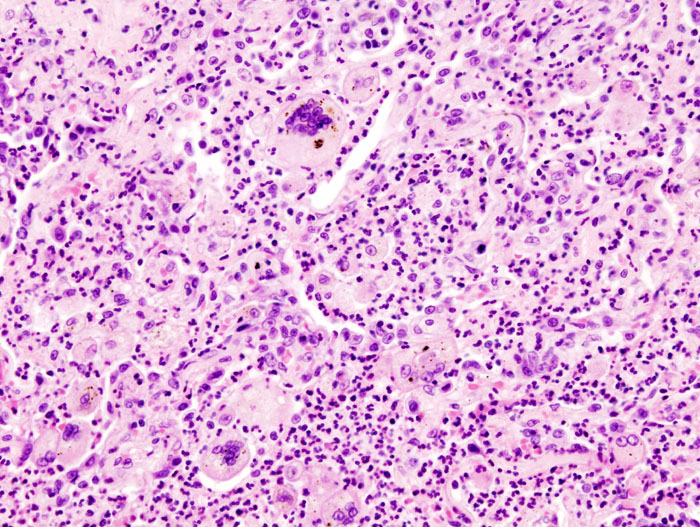Mendelson's Syndrome

Mendelson's syndrome is chemical pneumonitis or aspiration pneumonitis caused by aspiration during anaesthesia, especially during pregnancy. Aspiration contents may include gastric juice, blood, bile, water or an association of them.
Presentation
Mendelson's syndrome is characterised by a bronchopulmonary reaction following aspiration of gastric contents during general anaesthesia due to abolition of the laryngeal reflexes. The main clinical features are signs of general hypoxia, two to five hours after anaesthesia. Such features may include cyanosis, dyspnea, fever, pulmonary wheeze, crepitant rales, rhonchi, and tachycardia with a low blood pressure. Decreased arterial oxygen tension is also likely to be evident. Pulmonary edema can cause sudden death or death may occur later from pulmonary complications.
Risk factors
Historically it is said that a patient is at risk if they have:
- Residual gastric volume of greater than 25ml, with
- pH of less than 2.5
However these are indirect measurements and are not factors that directly influence aspiration risk.
Patients with a high risk should have a rapid sequence induction. High risk is defined as these factors:
- Non-elective surgical procedure
- Light anaesthesia/unexpected response to stimulation
- Acute or chronic, upper or lower GI pathology
- Obesity
- Opioid medication
- Neurological disease, impaired conscious level, or sedation
- Lithotomy position
- Difficult intubation/airway
- Gastrointestinal reflux
- Hiatal hernia
Eponym
It is named for Curtis Mendelson.